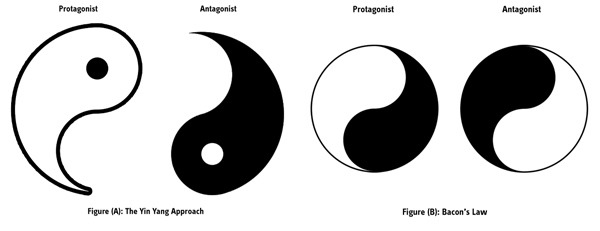Bacon’s Law
Words + Non-fiction
2016.02.05)
Los Angeles, CA

For every trait in an individual, there is a contrary trait, always equal in magnitude.
Well before the American revolution, there was an armed rebellion in 1676 led by Nathaniel Bacon who is considered to be the first man to unite white working class craftsmen (and servants) with black slaves against the colony’s wealthy elite. This was simply unprecedented, making Nathaniel Bacon stand out as somewhat of a visionary in the history of class struggle. Funnily enough though, Bacon was also of the opinion that Native Americans were to be completely eradicated.
Howard Zinn wrote about Bacon’s Rebellion in his quintessential A People’s History of the United State. I highly recommend it to anyone interested in a take on American history that is untainted by the often unavoidable falsehood of nationalism. It’s difficult to think of a person with the vision to unite blacks and whites as the same person wanting to wipe another human race off the face of the Earth. But here we have a perfect example of that kind of person, and it’s led me to drafting what I’ve decided to coin: Bacon’s Law.
Bacon’s Law, as far as I’m concerned, will prove to be important in life as well as in art. As far as life goes, applying Bacon’s Law will keep us from being disappointed in life, for it will keep us from idealizing anybody. Not Obama, not Bill Cosby, and not even the Pope. If we were to apply Bacon’s Law to the world around us, we would already know that no matter how “good” anyone is, there is an equal amount of “bad” as there is to that wholesome goodness. And y’know, it goes the other way around as well. There is always an equal amount of “good” to anyone we perceive as generally “bad.” Although it may be hard to imagine, but trust me, this even applies to guys like Donald Trump, Muammar Gaddafi, and fucking Kim Jong-Un. This is important for us in order to refrain from painting people as cartoon villains, and be able to consider everyone as a human being with an equal set of virtues as there are flaws.
As far as art goes, well… lately I’ve been finding myself less and less interested in reading fiction, and I think that may be largely due to how goddamn cartoony all the characters are. Even in the most serious and complex works of fiction I’ve read, the characters are still two-dimensional at best. And y’know, the more I think about it, the more I notice that the older folks I know tend to read less and less fiction and find themselves gradually gearing towards reading more non-fiction.
I’m starting to formulate a theory around this phenomenon. I think that as young readers we find ourselves interested in fiction because it opens up new and magical worlds to us that seem far richer and more complicated and exciting than our own lives. But as we grow older and our lives become more complicated, we begin to discover that the opposite is true; that fiction can’t even compare to the real world no matter how hard it tries.
Don’t get me wrong, I still believe in the power of fiction. That scene in Alan Moore’s V FOR VENDETTA where V is having a “conversation” with the statue of Madam Justice (Chapter 5: Versions) spoke to me far more than any “serious” work on Anarchist theory ever did. When reading anything on the birth of comic books in America, Kavalier and Clay will always come to mind. Journalism? Spider Jerusalem. It’s precisely because fiction is so powerful that I’m interested in creating fiction. But I’m also interested in creating fiction that isn’t awfully cartoony. Fiction that has something of the complexities of reality while still retaining that weird power that fiction has.
Hence, Bacon’s Law.
What’s quite common in fiction is the Yin Yang approach to characterization, where for every “good” character there’s one particular flaw, and for every “bad” character, there’s one particular virtue. That’s not Bacon’s law. Bacon’s Law implies that the good and bad in every character is absolutely equal.
Bacon’s Law, ladies and gentlemen. Apply it to art, life, and even your beloved parents.
